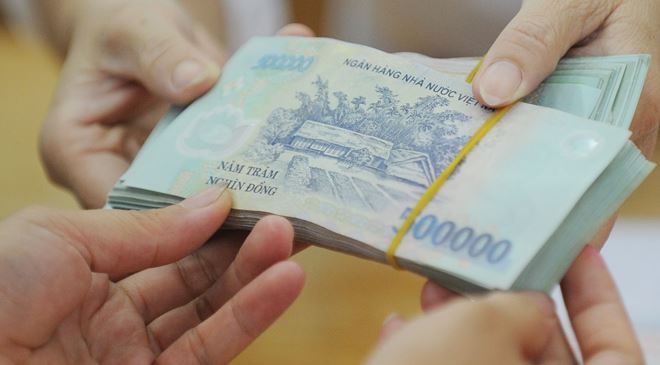Table of Contents
In the realm of finance, debt collection can be a complex and often contentious issue. While frustration may mount when faced with unpaid debts, resorting to illegal practices can land you in serious legal trouble. This article, presented by NT International Law Firm, delves into the legal landscape surrounding debt collection in Vietnam, highlighting alternatives to banned debt collection services and the potential consequences of unlawful methods.

Navigating the Labyrinth of Debt Collection: Legal Alternatives and Risks of Illegal Practices
The Ban on Debt Collection Services:
Prior to January 1, 2021, debt collection services operated as a licensed profession in Vietnam. However, the Investment Law 2020 brought a significant shift, effectively prohibiting debt collection services. This means businesses previously authorized to collect debts must now either dissolve or transition to other legal business lines.
Legal Basis:
The ban on debt collection services is firmly grounded in Vietnamese law, specifically:
- Clause 1, Article 6 of the Investment Law 2020: Prohibits investment in businesses listed in the “List of Industries and Occupations Banned from Business Investment.” Debt collection services are included in this list.
- Clause 5, Article 77 of the Investment Law 2020: Stipulates that existing debt collection contracts signed before January 1, 2021, must be terminated and liquidated.
Penalties for Engaging in Illegal Debt Collection:
Ignoring the ban on debt collection services can lead to significant consequences. Decree 98/2020/ND-CP outlines the potential penalties for such violations:
- Fines: Individuals can be fined from VND 60 million to VND 80 million for engaging in banned business activities like debt collection. For organizations, the fine doubles.
- Confiscation: Evidence and means used for the illegal debt collection activities may be confiscated.
- Remedial measures: Violators may be forced to return any illegal profits gained through their actions.

Alternatives to Banned Debt Collection Services
Alternatives to Banned Debt Collection Services:
While debt collection services are no longer a legal option in Vietnam, several alternative methods remain available to creditors:
- Direct Negotiation: The most straightforward approach is to directly communicate with the debtor and attempt to reach an amicable agreement on debt repayment. This can involve offering flexible payment plans or discussing alternative solutions.
- Legal Action: If direct negotiation fails, creditors can pursue legal recourse through the court system. Filing a lawsuit for debt recovery requires presenting evidence of the debt and can potentially lead to judicial enforcement of the repayment obligation.
- Reporting to Authorities: In case of suspected fraud or asset dispersal by the debtor, creditors can file a report with the police. This can initiate criminal investigations and potentially lead to legal prosecution.
Important Note:
Hiring individuals or organizations to engage in debt collection activities on your behalf, including using “gangsters,” is illegal and carries severe legal consequences. Both the person performing the collection and the creditor who hires them can face penalties ranging from fines to imprisonment, depending on the severity of the offense.
Conclusion:
Navigating the complexities of debt collection in Vietnam requires a clear understanding of the legal landscape. While the ban on debt collection services may seem limiting, it serves to protect individuals from potentially harmful and exploitative practices. Creditors are encouraged to explore alternative legal options for debt recovery, such as direct negotiation, legal action, and reporting to authorities. Remember, resorting to illegal practices like hiring debt collectors can land you in serious legal trouble. If you face challenges regarding debt collection, seeking professional legal guidance from a qualified lawyer is crucial to ensure you navigate the process effectively and within the boundaries of the law.
NT International Law Firm is Here to Help You
NT International Law Firm has addressed the question of why you should not hire debt collection companies or “gangsters” to collect what you are owed. If you have any further questions or concerns regarding bankruptcy law, please contact our law firm immediately for expert legal advice.
If you require any legal assistance, please feel free to reach out to us via phone at 090 252 4567 or through email: info@ntpartnerlawfirm.com. At NT INTERNATIONAL LAW FIRM, our team is committed to offering you prompt and personalized advice.
You also might be interested in:
“The article’s content refers to the regulations that were applicable at the time of its creation and is intended solely for reference purposes. To obtain accurate information, it is advisable to seek the guidance of a consulting lawyer.”

LEGAL CONSULTING SERVICES
090.252.4567NT INTERNATIONAL LAW FIRM
- Email: info@ntpartnerlawfirm.com – luatsu.toannguyen@gmail.com
- Phone: 090 252 4567
- Address: B23 Nam Long Residential Area, Phu Thuan Ward, District 7, Ho Chi Minh City, Vietnam
